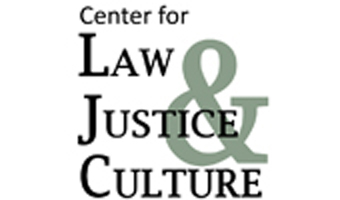 The Center for Law, Justice & Culture encourages undergraduate students to consider an array of online asynchronous courses for summer 2022 that deal with law in relation to culture, history, politics, and power in domestic and international contexts .
The Center for Law, Justice & Culture encourages undergraduate students to consider an array of online asynchronous courses for summer 2022 that deal with law in relation to culture, history, politics, and power in domestic and international contexts .
Some of these courses (marked with an asterisk) count toward the Law, Justice & Culture Certificate requirements.
The certificate is a selective certificate program that provides interdisciplinary training in law and society. The program accepts applications each fall.
Online Summer 2022 Course Offerings: Law, Justice & Culture
AAS 3460: Black Men and Masculinities
- First session: May 9 to June 25
Black Men and Masculinities is an interdisciplinary course that examines the diverse experiences of black men and the public discourses about black masculinities primarily in the U.S. The major thrust of the course is to examine how the gendered social order influences black men’s actions and the way black men perceive themselves, other men, women, and social situations. We will use an intersectionality perspective to explore the relationships between multiple dimensions of social relations and inequalities: gender, race/ethnicity, class, and sexual orientation. We will also consider how black masculinities are produced in various physical/social sites. This course evaluates the prospects for social change in how black men think, feel, and act. It addresses issues such as: black male socialization and boyhood/guyland culture, the black male body image, black male friendship, black male sexuality and fertility, black men’s experiences as fathers and their involvement in volunteer and paid youth work, male aggression and violence, the social construction of masculinities in different historical and cultural contexts, and men’s movements and networks. – Taught by Bayyinah Jeffries, Ph.D., associate professor of and chair of African American studies on the Athens campus.
*ANTH 3530: Anthropology of Violence and Peace
- First session: May 9 to June 25
This course examines prevailing cultural forms and meanings of state violence, repression, and terror in the 20th and early 21st centuries. Topics include: colonialism and conquest; complicity and collaboration; totalitarianism; structural violence; transitional justice; memorialization; and truth telling. – Taught by Haley Duschinski, Ph.D., associate professor of anthropology on the Athens campus.
ANTH 3568J: Writing for Social Justice
- Second session: June 27 to Aug. 13
This course combines writing instruction with a focus on using the tools of social science to promote active citizenship and bring about systemic change on issues of vital social concern. Social justice topics considered range from access to education and healthcare; environmental degradation; poverty and economic power; discrimination based on race, gender, and sexuality; reforming and reimagining criminal justice; immigrant and refugee rights; ableism and disability justice; corporate globalization; settler colonialism; warfare, militarism, and conflict transformation; and community empowerment and transformative organizing, among others. Through a focus on written communication, the course trains students in effective writing for social transformation, with special attention to the emancipatory potential of social science. – Taught by Haley Duschinski, Ph.D., associate professor of anthropology on the Athens campus.
PSY 3520: Social Psychology of Justice
- Second session: June 27 to Aug. 13
Theory and research on the interface of psychology and the legal system (with an emphasis on social psychology). Specific topics include ethical dilemmas faced by psychologists in the legal system; legality vs. morality; the socialization, training, and ethics of lawyers and police; perception memory and error in eyewitness testimony; hypnosis; lie detection and confessions; rights of victims and accused; rape and rapists; arrest and trial; jury selection; jury dynamics and deliberations; insanity and the prediction of dangerousness; sentencing; death penalty; rights of special groups; theories of crime. – Taught by Sandra Hoyt, Ph.D., professor of instruction in psychology on the Athens campus.
POLS 3230: African American Politics in Theory and Practice
- First session: May 9 to June 25
The course examines the experiences of African Americans in the American political system. It focuses on the historical and contemporary status of African Americans in American politics. African American politics in the post-civil rights era constitutes a major part of the course. African American political mobilization and participation, racial representation and leadership, partisan politics, and public policymaking are key topics. The course centrally details the influence and presence of African Americans within American political institutions. A defining theme of the course is an evaluation of the nature and evolution of African American politics within the context of a theoretical and practical paradigm which principally focuses on governmental institutions and political behavior. – Taught by Dr. Linda Trautman, Ph.D., associate professor of political science on the Lancaster campus.
SOC 2400: Breaking the Law
- First session: May 9 to June 25
This interdisciplinary course explores central questions about law, crime, justice, social change, human rights, globalization, and technology in the new global era. The dominant global forces that have defined the 21st century have massively transformed law and legal frameworks, at both local and global levels. How is violence enacted through law, and how is law’s violence resisted, challenged, and overcome? What is law’s role in relation to patterns of discrimination and marginalization that produce social suffering and vulnerability? In relation to global human rights regimes and international justice mechanisms? In relation to inequalities in access to health care and other basic human goods? How are our understandings of our own bodies, lives, and futures shaped by law? – Taught by Bruce Hoffman, Ph.D., associate professor of sociology on the Athens campus.
*SOC 2600: Criminal Justice
- Second session: June 27 to Aug. 13
This course examines the structures and decision processes of agencies that deal with crime and people involved in the United States criminal justice system, including criminal justice personnel, people apprehended and convicted of crimes, and victims of crimes. An emphasis is placed on how criminal justice practice is based on politically derived public policies and the use of discretion by criminal justice personnel. Students use critical thinking and ethical reasoning to analyze the practice of these agencies. Topics include but are not limited to criminal law, policing, court systems, sentencing, and corrections. – Taught by Amanda K. Cox, Ph.D., assistant professor of instruction in sociology on the Athens campus.
SOC 3568J: Writing for Social Justice
- Second session: June 27 to Aug. 13
This course combines writing instruction with a focus on using the tools of social science to promote active citizenship and bring about systemic change on issues of vital social concern. Social justice topics considered range from access to education and healthcare; environmental degradation; poverty and economic power; discrimination based on race, gender, and sexuality; reforming and reimagining criminal justice; immigrant and refugee rights; ableism and disability justice; corporate globalization; settler colonialism; warfare, militarism, and conflict transformation; and community empowerment and transformative organizing, among others. Through a focus on written communication, the course trains students in effective writing for social transformation, with special attention to the emancipatory potential of social science. – Taught by Haley Duschinski, Ph.D., associate professor of anthropology on the Athens campus.
*SOC 3630: Juvenile Delinquency
- Second session: June 27 to Aug. 13
This course examines the social forces that shape the social control of children and adolescents and produce juvenile delinquency. Topics include but are not limited to the history and social construction of youth and adolescence in the United States, the history of the juvenile justice system, the age-crime relationship, the empirically established predictors of behavior problems and youth crime, and a survey of juvenile justice programs and policies. – Taught by Thomas Vander Ven, Ph.D., professor of sociology on the Athens campus.
*SOC 3640: Police and Society
- First session: May 9 to June 25
this course examines the nature and development of policing in the United States from a sociological perspective. Students are introduced to a broad range of topics including police decision making, procedural law, police culture, types of policing, police-minority relations, and police misconduct. Examines the changing role of police in society and the potential consequences these changes have for the development of social policy. – Taught by Holly Ningard, Ph.D., assistant professor of instruction in sociology on the Athens campus.


















Comments